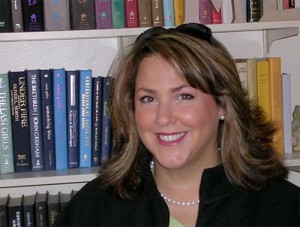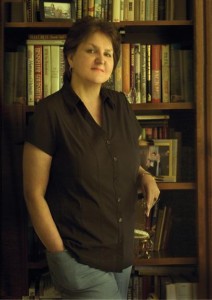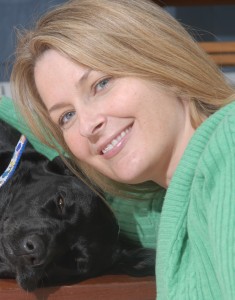 The exciting news: Y'all know how much we crush on Jen Weiner. So whenever she has good news to share, we have to help spread the word. And if you've been craving something new from her to read, you're in luck! She's written an original eShort Story that you can download for .99. Here are the deets:
Her latest: A Memoir of Grief (Continued) (Out today!)
The exciting news: Y'all know how much we crush on Jen Weiner. So whenever she has good news to share, we have to help spread the word. And if you've been craving something new from her to read, you're in luck! She's written an original eShort Story that you can download for .99. Here are the deets:
Her latest: A Memoir of Grief (Continued) (Out today!)
Where you can get it: Amazon.com, Apple iBooks, BarnesandNoble.com, and Simon & Schuster.
The scoop on it: A Memoir of Grief (Continued) continues in the now-annual tradition of Jennifer’s Halloween short stories, following last year’s bestselling Recalculating.
Artists have their appetites. This is what Ellie King would tell herself when discovering lacy panties in the backseat of her husband Gerry’s Cadillac, when Gerry was too self-involved to embrace their only son, or when he insisted on summers in the Hamptons and bespoke suits from London when, in fact, as critics pointed out, his once thriving writing career was past its prime, and they were buried in debt.
Yet, Ellie tried her best to portray the charmed, whimsical life she had dreamt of since her days as an English major at Wellesley College -- the kind of life a sophisticated literary couple should be leading: chauffeured soirees, nostalgic trips to Europe, cozy evenings filled with cups of strong black espresso. The skeletons that Gerry King harbored in his closet were known by only one other person: Ellie. And she wanted to keep it this way. She had given up everything for him.
However, when Gerry dies of cancer, he leaves something behind that would expose all of their dirty secrets; something that would jeopardize the mask that Ellie worked so hard to front. And when it gets into the wrong hands, Ellie is forced to do the unthinkable…
In A Memoir of Grief (Continued), Jennifer Weiner exposes a woman’s world of shattered dreams and raises an intriguing question: How far would you go to protect your pride?
 Want more? Here's an excerpt from of A Memoir of Grief (Continued):
Want more? Here's an excerpt from of A Memoir of Grief (Continued):
She's never looked better,” Peter Schmidt said to his boy of the moment, from a corner of the kitchen.
Ellie was in the hallway, her little dog Duncan trotting briskly at her heels, two trash bags in her hands, filled with the leavings of her husband’s memorial party: empty tinfoil trays that had once held kugel and lasagna, miniature bagels, whitefish salad, lox. She shouldn’t have been able to hear anything from the kitchen, but, after forty years in their apartment—my apartment, her mind amended; even with Gerald six weeks gone she found herself continually working to remember that the apartment on the Upper East Side, with its spacious living room that overlooked the park and its dingy kitchen that overlooked an air shaft, was her apartment now, or would be, for as long as she could afford it—she knew the acoustics well. There were corners of the living room where you could hear everything in the guest bedroom; from the master bathroom you could listen in on every word uttered in the front hall.
“Death becomes her?” That was Peter’s boy—or rather the boy Peter was chasing, a literary agent named Simms Downing, slim-hipped and graceful, his hair in a neat ponytail and his eyes dark as river-wet granite stones, all of twenty-seven to Peter’s sixty-two. People had known exactly what was going on after Peter, the editor of Paradigm Press, whose longtime companion of thirty years had died of a heart attack the year before—had started paying six-figure advances for every proposal the handsome young agent had brought him, including a collection of free-verse poetry and cocktail napkin doodles by the not-famous bass player in a once-famous band.
Ellie and Gerry had been friends with Peter and his husband Michael, an eternally cheerful middle school history teacher whose real job, like Ellie’s, was taking care of his brilliant, difficult husband. One morning a year after Michael had died, Ellie and Gerry were picking up Gerry’s usual bagels and a cake to serve after dinner, when she’d seen Peter and Simms at Sarabeth’s, huddled over maps of the fifth arrondissement, and she’d known, from the way Peter’s eyes followed Simms’s hands as they moved through the air, the way he devoured the sight of Simms lifting his coffee cup to his lips, that Peter was in love . . . and Simms wasn’t. He’s playing you, she’d wanted to whisper into Peter’s wrinkled, age-spotted ear, from which a tuft of hair white as St. Nick’s beard protruded . . . but would he listen? Did people in love ever listen? God knows she hadn’t when she’d fallen for Gerry, when she’d been a curvy, buxom senior at Wellesley, with a cloud of inky-black curls that she wore piled on top of her head. Gerry, who’d published an acclaimed short story collection and was putting the finishing touches on his novel, had come to teach a three-week semester in Cambridge, and Ellie was wild to be admitted, to sit at the great man’s feet.
“He’s gross,” groaned her roommate Alice Ellison, long-limbed and elegant, with thin blond hair and a ski-jump nose, came from an old Greenwich family. She was a third-generation Wellesley-ite, and had come to campus with a vintage Vuitton trunk full of clothing, and her own dressage horse. Ellie couldn’t argue. Gerry was from Detroit, spat when he talked and sweated when he lectured and had a tendency to scratch himself wherever he itched, no matter who was looking. “And that story,” Alice said, rolling her eyes and tugging at the hem of her A WOMAN NEEDS A MAN LIKE A FISH NEEDS A BICYCLE T-shirt. “Dirty Blonde? The woman doesn’t even get a name, she’s just . . .” And here she curled her slim fingers into ironic quotation marks.
“The Blonde? You think a guy who writes a story like that has any regard at all for women?”
Ellie didn’t know, and honestly she didn’t care. Gerry could write, and she would polish him, smooth his path, make his work possible. She hadn’t come from money, but, after four years surrounded by girls who had, she knew what he needed if he was to be a Great American Novelist, on television, in front of lecture halls, seducing the world with his words. She would encourage him to get his teeth capped and his hair cut; she’d introduce him, as Alice had introduced her, to sushi and raw oysters; she’d help him figure out about hand-sewn shirts, good cologne, and which fork to use for which course; how to move in the world in a way that would ensure he was treated like he deserved to be treated.
That morning at Sarabeth’s, the windows steamy from the press of bodies at the counter, Gerry had pumped Simms’s hand. Gerry’s old friend and agent of forty years, a man named Asher Fox, was easing his way into retirement, and Simms would soon be taking over Gerry’s business, his backlist and his work in progress. Ellie had embraced the younger man, then Peter, breathing in his smell of halitosis and pipe smoke, of body wash and styling gel and, beneath them, the unmistakable odor of something rotting from the inside. She knew that smell—wasn’t she living with it?— and wondered only where it came from. Liver? Lungs? Prostate, like her Gerry, who would spend his last six months sitting in their living room, looking out over the park, stoned on the dope the doctors gave him, railing about the “idiot cunt” whose book—a mystery, no less; not even literary fiction, not even, as Gerry sneered, a “real book” as much as a “book-like object”—was on the cover of The New York Times Book Review? “Good luck,” she’d whispered in that tufted ear, and Peter had given her a hopeful smile, his blue eyes twinkling. At that moment, he seemed almost sixteen again, sixteen and in love for the first time.
Now, as she toted the trash toward the chute at the end of the hall, she heard them keep talking. “Think she can pull it off?” Simms was asking, in his lazy Southern-boy drawl (he’d been born and raised in Nashua, New Hampshire) . . . and then he’d answered his own question with, “Guess it can’t hurt to ask her.” Cain’t hurt. Oh, he was good. First, he’d fascinated the ladies of the publishing world, selling a so-so first novel by a twenty-two- year-old wunderkind to Knopf for seven figures, then an essay collection from a famously grumpy news anchor for eight. Then he’d decided that Peter was, as they said, a sure thing, and why should he work so hard, courting this editor and that one to make his deals, when he could sell everything at inflated prices to one eager, besotted man?
“She is thinner.” Peter sounded thoughtful. He’d been Ellie’s husband’s publisher for forty years, for seventeen novels, three essay collections, four books of short stories and various anthologies. He’d known Gerry since Gerry had been with his first wife, his college sweetheart, an apple-cheeked blonde given to floral dresses that, in Ellie’s opinion, made her look like a couch. “We could get some pictures taken.”“Inger Castellano,” said Simms, naming the high-priced auteur who worked only in black and white, who posed authors with their hands wrapped around their heads, hands arranged just so against cheeks and temples as if they were trying to keep their brains from falling out. Inger had taken Gerry’s last set of author photos, for his last collection of short stories, the one that had been savaged by the Times.
Ellie had stopped by the studio in Chelsea with lunch—Gerald, by then, was on a fat-free, sugar-free, low-sodium regimen that Ellie had researched on the Internet, after consulting with an acupuncturist, a nutritionist, and an astrologer. She’d sprinkled his salmon with the enzymes the acupuncturist had advised, and brewed his special tea, which smelled, Gerry complained, like fetid socks . . . but Ellie made sure he drank every drop and ate every bite and, most of all, kept his hands to himself. Inger had intense dark eyes, a boyishly lean body, hands and forearms strong and sinewy from handling heavy equipment. She was Gerry’s type, insofar as most females were Gerry’s type, and they couldn’t afford another affair, no matter how adept Ellie had gotten at handling them.
Where you can read more about Jennifer: Facebook, Twitter, Pinterest and her website.
xoxo,
Liz & Lisa
 Y'all know we love on Jennifer Weiner. One of our favorite books of 2014 was her novel, ALL FALL DOWN. And tomorrow, April 7th, it will be available in paperback--just in time for spring!
Would you like to win a copy? Just leave a comment on this post and you'll be entered. Contest closes Thursday, April 9th at 10am PST.
Y'all know we love on Jennifer Weiner. One of our favorite books of 2014 was her novel, ALL FALL DOWN. And tomorrow, April 7th, it will be available in paperback--just in time for spring!
Would you like to win a copy? Just leave a comment on this post and you'll be entered. Contest closes Thursday, April 9th at 10am PST.


















 We make no secret of the fact we have MAJUH crushes on a few, select,
We make no secret of the fact we have MAJUH crushes on a few, select, 
 We are ecstatic that Jennifer Weiner has agreed to share her innermost secrets here at Chick Lit Is Not Dead. Well, maybe not her innermost secrets, but we were thrilled to discover little nuggets about her. And it turns out, we share a love for the same television shows and all appreciate the word "douchebag"! We love this woman! In fact, GOOD IN BED is one of Liz's all-time favorite books, and Lisa has read THE GUY NOT TAKEN more times than she can count.
We are ecstatic that Jennifer Weiner has agreed to share her innermost secrets here at Chick Lit Is Not Dead. Well, maybe not her innermost secrets, but we were thrilled to discover little nuggets about her. And it turns out, we share a love for the same television shows and all appreciate the word "douchebag"! We love this woman! In fact, GOOD IN BED is one of Liz's all-time favorite books, and Lisa has read THE GUY NOT TAKEN more times than she can count.